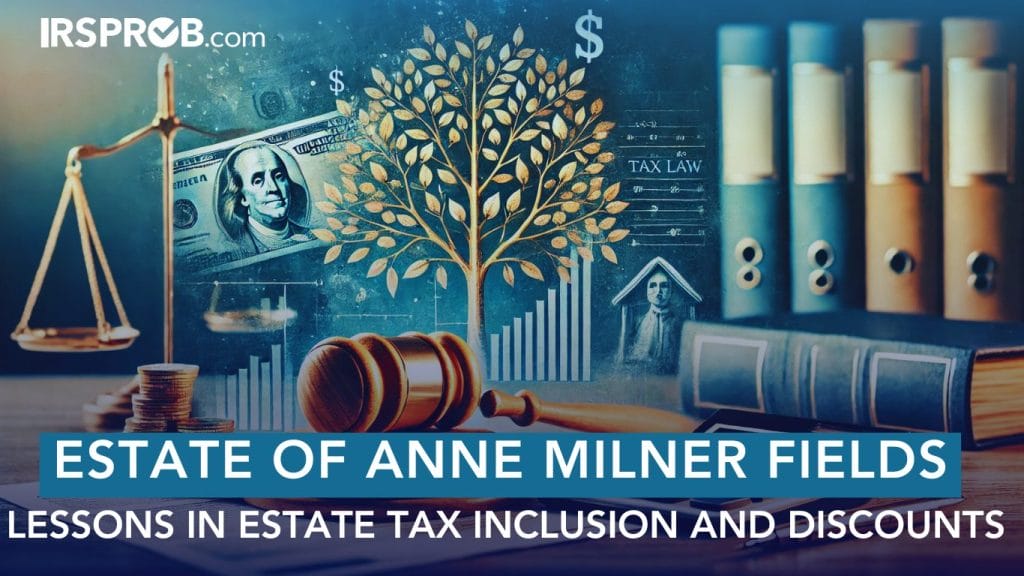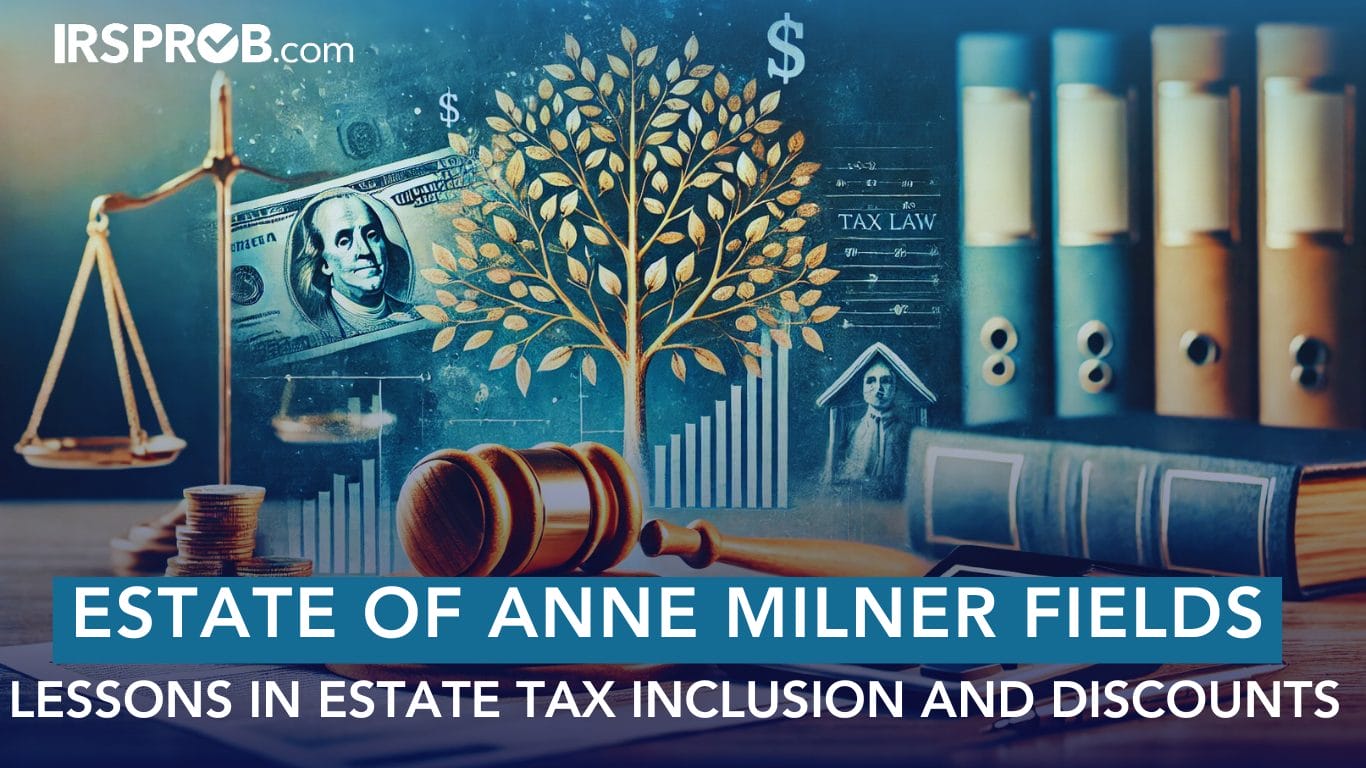
In the recent Tax Court case Estate of Anne Milner Fields v. Commissioner, a complex estate planning scenario involving a Texas oil heiress has underscored the importance of understanding how certain asset transfers can trigger estate tax inclusion under IRS rules. Let’s break down this case and explore the key takeaways for anyone looking at estate planning with closely-held business interests.
Background on the Case
Anne Milner Fields, who inherited a successful oil business from her late husband, had accumulated significant wealth over the decades. In 2016, a month before her passing, her great-nephew Bryan Milner, using power of attorney, transferred approximately $17 million worth of her assets into a limited partnership called AM Fields, LP. Fields held a 99.99% limited partner interest in AM Fields, with Milner’s LLC acting as the general partner.
On her estate tax return, Milner reported the partnership interest’s value at $10.8 million, claiming discounts for lack of control and marketability. However, the IRS disputed this valuation, citing Section 2036(a) of the Internal Revenue Code, which can pull assets back into the estate if a decedent retains rights or benefits over transferred assets.
Key Issues and the Court’s Findings
The Court focused on three main questions:
- Did Ms. Fields retain interests in the transferred assets?
The court found that Fields did retain economic benefits, as Mr. Milner had the authority to distribute partnership income for her benefit. The Court ruled that her transfers were not valid for avoiding estate tax as they were testamentary in nature and retained the same control and benefits as before the transfer. - What was the fair market value of the partnership interest at death?
The IRS contended the estate undervalued Fields’s limited partnership interest. Using expert testimony, the court valued the transferred assets at $17 million, with the IRS conceding that Ms. Fields’s interest should reflect her full wealth. - Was the estate liable for accuracy-related penalties?
The Court ruled in favor of penalties under Section 6662(a) due to substantial understatement of estate tax. Despite Mr. Milner’s efforts, the court found insufficient evidence that the estate acted on informed professional advice about the discounts and exclusion.
Lessons for Estate Planning
- Transfers and Retained Interests
Taxpayers cannot avoid estate tax merely by transferring assets if they continue to retain control or enjoyment. The IRS scrutinizes arrangements where the decedent keeps access to income or asset benefits. - Be Cautious with Discounting
While discounts for lack of control or marketability can reduce estate tax, they must be applied legitimately. Courts will look closely at the partnership’s actual function, especially if formed near death, to ensure tax motives do not dominate. - Professional Advice is Key, but So is Documentation
This case shows the importance of detailed documentation and professional estate planning advice. Simply hiring a tax preparer isn’t enough; the estate must demonstrate good faith reliance on well-supported tax advice.
Overall, the Estate of Anne Milner Fields highlights the complexities in estate planning when large business assets are involved. Taxpayers with substantial wealth or business interests should seek thorough estate planning to ensure compliance and reduce audit risks.









